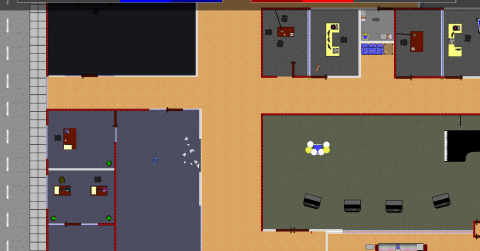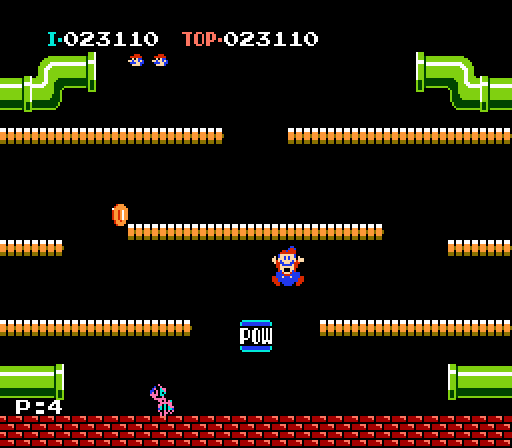Why Innovation is Hard
By nintendoeats 19 Comments
Anybody who has been following the video game industry in recent years knows that the growth of the indie game scene has led to an explosion of news ideas and niche mechanics that we haven’t seen since the early days of the Commodore 64, and bedroom coders. It also seems pretty obvious why: large scale production is expensive, and publishers need to know that games getting a lot of funding will sell. Indies face bigger personal risk, but since they really can’t compete with large-scale development houses anyway they have no choice but to try innovative things. Now that I’m a bit of a ways into developing an indie game, I think that I can express that sentiment in a slightly more concrete way.

It’s not simply a matter of audience familiarity. Some people believe that big developers only make titles that are similar to other popular games because audiences already know what to expect from them and will make a purchase based on prior good experiences. That may be true to a certain extent, but I don’t think that it’s the main reason. No, the really big difficulty is designer familiarity.
Imagine that you are a game designer. You have been tasked with making a first person shooter, and the development cycle is 18 months. The programmers need to know generally what the game is going to look like as soon as possible so that they can start coding up the engine, and the tools, and all of the interactions that you need. The artists need to know what the technical requirements of their work are, and what types of things to start working on. Well, you already have a pretty good set of things to tell them! “The player is going to be a camera floating in space that will control like *** and we are going for a feel that is like *** so the animation system should work like ***…” so on and so forth. You know basically what you’re going to need because there are already a whole bunch of genre conventions that you can work with, and can adjust at the outset based on prior experience. This buys you valuable time to innovate on more trivial, but safer things. You know that unless you really make a hash of it, the game is going to have tried-and-tested elements that will make it at least playable.
Now I’m going to pull an example from the game that I’m working on (which some of you may have played in an early form before). It looks and controls like a twin-stick shooter, but it’s also very fast and intended to be quite tactical in spots…and that’s just the start of it. Without getting into details, it’s got a whole bunch of elements that are intended to make it feel like an action movie. Now, we already have some mechanics that we know can be a lot of fun, but we didn’t get that from prior experience. We got it from a prototype that I had to work on in my spare time for almost 6 months. So it’s taken us half a year to get not even to the point where a team developing a shooter starts: a basic sense of what elements are core to our game.

The most useful trick for getting around this problem is to look at games in other genres that have achieved things that you like, but adapting one element of a game and putting it into a new structure isn’t easy either. The prototype that I built contained a system lifted directly from Bulletstorm, and while it worked in that game (sort of) it didn’t fit ours well. In the end, all we managed to prove is that using a scoring system like that isn’t worth the problems that it creates. If there were more games already out there like ours, we would have known that much sooner.
And in the end, it may turn out that we’re wrong, because we can’t really forsee what problems are going to crop up later in development. Will it turn out that our mechanics create a lot of restrictions in level design? We want stealth sections, but will it turn out that there is no way to organically force the player to be more cautious? These kinds of questions can be answered easily in genre games, but they require a lot of time to answer otherwise…time that can be difficult to come by. They need to be answered too, because even simple questions like “should we make bullets deal less damage over long distances” can be very costly if you answer them wrong at the beginning of development.
The point that I’m trying to make here is that small scale innovations are much easier to make than big ones, not because new genres are hard to come up with but because developing them into something fun is a massive and risky undertaking. With that said, it’s worth it: Assassin’s Creed, Burnout and even Mario had to go through released iterations before they reached their full potential, but I think we’re all glad that they did.

EDIT: Rereading this, it sort of looks like a thinly-veiled advertisement. That was not my intent. Sorry :(